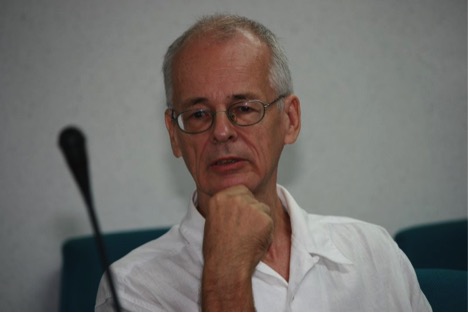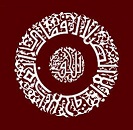
On Islamic Science: Facts and Challenges
Paul Lettinck adalah mantan Guru Besar di International Institute of Islamic Thought and Civilization (ISTAC) Kuala Lumpur selama 9 tahun (1996-2005) dan sebelumnya pernah selama setahun (1992-1993) menjadi peneliti di Department of the History of Science, Oklahoma University Amerika Serikat disponsori oleh lembaga swasta Rockefeller Foundation. Ia mendapatkan gelar Ph.D pada tahun 1973 dalam bidang fisika nuklir dan Ph.D kedua di tahun 1991 dalam bidang Semitik dari Vrije Universiteit Amsterdam, Netherlands. Karya-karyanya yang telah diterbitkan antara lain: Aristotle’s Physics and its Reception in the Arabic World (Leiden: Brill, 1994), Aristotle’s Meteorology and its Reception in the Arab World (Leiden: Brill, 1999), Philoponus: On Aristotle Physic 5-8 with Simplicius: On Aristotle on the Void (Bloomsbury, 2014), dan sejumlah artikel di jurnal internasional. Menjelang kunjungannya ke Jakarta awal pekan depan, ia berkenan menerima Direktur Eksekutif INSISTS Syamsuddin Arif untuk sebuah wawancara singkat seputar sains di dunia Islam. Berikut petikannya:
Q : How are you ?
I am fine, and happy that I am invited by INSISTS. I look forward to meeting the people from Jakarta and surroundings who are interested in the history of Islamic Science.
Q : We are informed that you hold two PhDs – one in Nuclear Physics and a second one in Semitics. What was the story behind your decision to study Semitic languages?
The career for someone who graduated in physics was most often to teach in secondary school. I attempted this for a few years, and in the meantime during my holiday travels in North Africa I became acquainted with Arabic culture, which quite appealed to me at that time. Since I did not feel that I would like to be a lifelong teacher of physics, I changed direction and decided to study Arabic. I found it a nice language to study with an extensive, interesting literature.
Q : You spent 9 years at ISTAC working as Professor of History and Philosophy of Islamic Science. What exactly did you teach there and what was the expected outcome of such instruction ?
I was invited to teach at ISTAC because they knew my publications on the history of Islamic science and philosophy, so that was the main subject I taught there. I was also asked to teach Logic, which supposedly is a course needed for any study, and ancient Greek and Latin. Apart from the fact that learning these languages is an intellectual exercise and satisfaction for any student, someone who wants to thoroughly study an Arabic text on science, find its sources and compare it with earlier science texts, needs to know Greek. And if he wishes to study the influence of the text on later developments, he needs to know Latin.
Q : Many people dismiss Islamic science as something nostalgic that is suitable for school children. Yet there has been a growing interest and increasing effort by scholars (from Wiedemann’s Aufsätze zur arabischen Wissenschaftsgeschichte down to Roshdi Rashid’s works as well as yours) to take Islamic science seriously. Can you explain the importance of such endeavour?
I do not know who these “dismissive” people are, but Arabic culture, including science, has been the subject of serious study since the Renaissance (for instance, Erpenius in Leiden, who died in 1624) and indeed nowadays there are quite a few institutes around the world that are devoted to the history of Islamic science, such as in Barcelona, New York (Columbia University), Yale, Oklahoma, Aleppo, Frankfurt, etc.
Many people are not interested in history and of course one can be a good scientist in one’s daily job without knowing anything about history. However, knowledge of history gives one a deeper understanding of what science is and what it is not, and it makes one more aware of the fact that people in different times and different cultures may have had a different approach to the investigation of nature.
Q : Despite its brilliant achievements in the past, science in the Muslim world has been said to be declining over the last five hundred years. What is your opinion on this?
When you look in the internet you will find numerous opinions on why science did not continue to flourish in the Islamic world since around 1500 and why the further major developments occurred in Western Europe. The basic reaction on this is that there is no definite answer on the “why”. History is not nature, what happens “just happens”. But one may try to find factors that are either positive or negative for a certain development, and such factors have been adduced by various historians of science. I do not pretend to have an opinion of my own on this matter. I would agree with Cohen in his book How Modern Science Came into the World (2010) who says that there were no prohibitive reasons why what people usually call the Scientific Revolution could not have happened in the Islamic world in the 11th century. Maybe I can elaborate on this during the [upcoming] lectures.
Q : What are the challenges confronting those interested to study history of Islamic science and what should they do?
There are still numerous Arabic manuscripts on science that are just lying there around the world in libraries and other institutes, and even private collections. Nobody knows what their content is. The challenge is first to discover these manuscripts, to edit, print and publish them. Then, to study the text, to find by which previous texts these works were influenced, and what was their influence on other works in their time and later times. For this a knowledge of Greek and Latin may be needed (see question 3 above). A translation into English would make the text available to a larger public worldwide.
Thus, there is much challenging work to do for a student who knows Arabic, Greek, Latin, English, and maybe French and German as well! But still, if you just know Arabic well, much work lies before you.
Q : Thank you for your kind response and valuable time!
My pleasure!





